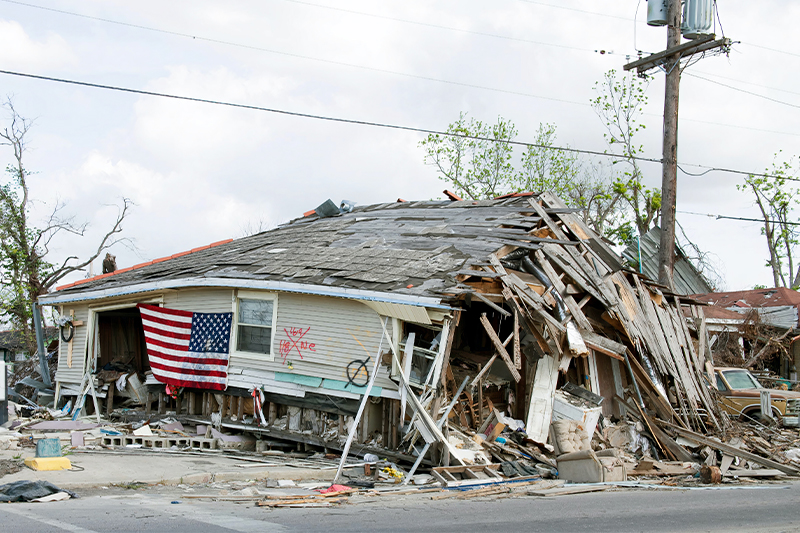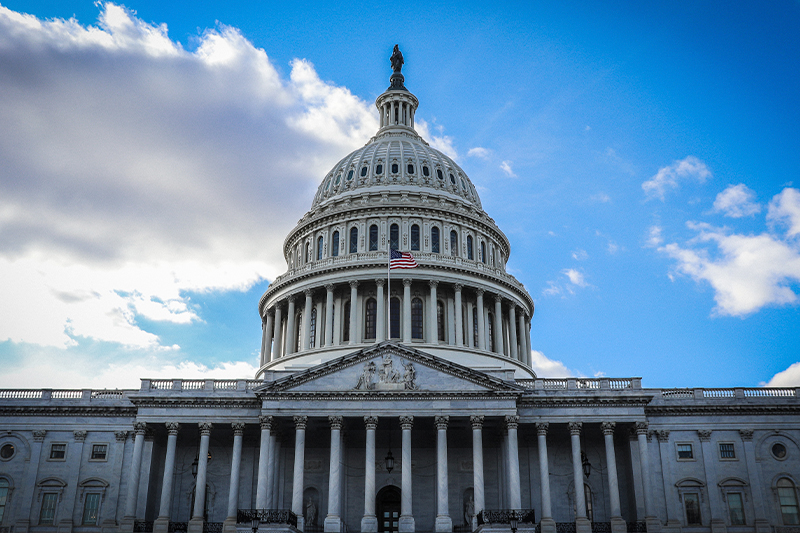
What's Past is Evolving
This blog celebrates the Guardians of Preparedness: Tracing the Journey of Emergency Management. So, let us step into the annals of history, where the origins of Emergency Management unfold as a testament to human resilience. Born in the aftermath of World War II, a pivotal moment marked the birth of a structured approach to handling emergencies. Civil defense initiatives took root, driven by the need to safeguard communities from unforeseen challenges. This led to the establishment of the Federal Civil Defense Administration, laying the cornerstone for what we now recognize as Emergency Management.
Let’s dive into a brief overview of emergency management, exploring the evolution of U.S. preparedness, the significance of FEMA certification, and the global landscape. We’ll speak to technological advancements, international collaboration, and climate change adaptation strategies shaping the future. This is by no means a comprehensive overview of the subject but is meant to provide an introduction to the topic while providing a guidepost for where the professional is headed.

1. Early Foundations
The focus on civil defense persisted as the US transitioned from wartime to peacetime. In 1979, the landscape underwent a transformative shift with the creation of the Federal Emergency Management Agency (FEMA). This milestone solidified the commitment to proactive disaster response, signifying a crucial juncture in the evolution of US preparedness. Many know that Emergency Management’s Incident Command System (ICS) was adapted from the military and leveraged by firefighters to combat wildfires in California in the 1970s. If you want to learn more, I recommend reading the History of ICS on the Emergency Management Services International site.

2. Adapting to Challenges
Next, the pages of history reveal instances where Emergency Management faced severe tests. One of those milestone events for the US was Hurricane Katrina and the September 11 Attacks. Hurricane Katrina in 2005 and the tragic events of 9/11 stand as indelible markers, underscoring the need for adaptive strategies. These challenges prompted a reevaluation of policies and frameworks, propelling the profession towards greater resilience. Each event validated the need for advances in professionalism in the discipline.

3. A Global Tapestry
Importantly, beyond American borders, Emergency Management took on a global perspective. Countries worldwide developed strategies for responding to diverse challenges—collaborations formed, transcending international boundaries, as nations united to address transboundary crises. The narrative of Emergency Management became interwoven with a collective commitment to global preparedness. For example, in Australia, ICS practices were adapted to the nation’s needs through the Inter-service Incident Management System (AIIMS). However, national emergency preparedness continues to be a challenge for many countries that lack the resources and infrastructure to respond to significant emergency events.

4. Innovation and Technology
The journey through time reveals the resilience of the human spirit and the embrace of technological advancements. Early warning systems, GIS mapping, and the integration of artificial intelligence are reshaping the landscape, enhancing the precision and efficiency of Emergency Management practices. Unsurprisingly, early tools are evolving into ever more sophisticated platforms. Indeed, many vendors offer software solutions, and you’ve heard us talk about BlackBerry’s Athoc for critical event management. In today’s dynamic landscape, where resources and capacity remain scarce, digital tools are a force multiplier to safeguard and keep communities secure.

5. Community-Centric Approach
Crucial to the narrative is recognizing the pivotal role played by communities. From grassroots initiatives to educational programs, communities actively bolstered overall resilience. Understandably, this community-centric approach emerged as a cornerstone, fostering a sense of collective responsibility. At Disaster Empire, we are no strangers to advocating for increased accountability and ownership of the emergency response process by local communities. Whether you are part of a small municipality or a major urban center, robust emergency management programs make sense.
No longer should the work be relegated as an add-on to a police or fire chief’s duties. Nor is it best placed at the mayor or town planner’s feet. As discussed in Thoughts On NOAA Billion-Dollar Weather And Climate Disasters, a response’s increasing severity and complexity require focused expertise. There’s a rising expectation that emergency management be fully recognized as a professional specialty. Now, we don’t mean to override the importance of experience. However, we put this forward as a worldwide call to action. It is a brutal reality that many communities worldwide lack this expertise for event management.

6. Education and Professional Development
Finally, examining the educational landscape reveals how Emergency Management has blossomed into a discipline with dedicated academic programs. Numerous universities across the United States offer specialized degrees in Emergency Management, providing students with comprehensive knowledge and skills to navigate this critical profession. Additionally, FEMA certifications have become instrumental benchmarks for professionals in the field. These certifications, ranging from the Emergency Management Professional Program to specialized courses like the National Incident Management System (NIMS), serve as valuable credentials, enhancing one’s expertise and employability.
Beyond American shores, shed light on international educational opportunities for aspiring Emergency Management professionals. Explore collaborative programs and partnerships that transcend borders, fostering a global network of experts equipped to tackle the complexities of today’s interconnected challenges. Whether through exchange programs, joint research initiatives, or collaborative conferences, these educational opportunities contribute to cultivating a diverse and well-prepared cadre of Emergency Management leaders worldwide.
The Federal Emergency Management Agency (FEMA) publishes an online accessible list of emergency management and aligned disciplines of advanced degrees. We can only hope we see the same evolution for corporate crisis management in the future.

Looking Forward
As we navigate the professional aspects of the emergency management field, we stand at the threshold of the future. Emerging trends, such as climate change adaptation and technology integration, beckon us to anticipate and adapt. The lessons from the past guide us as we collectively chart a course toward a future where preparedness and resilience reign supreme. We are witnessing the evolution of policies and frameworks that laid the foundation for a structured approach to handling emergencies, shaping the profession into a vital force for resilience in the face of unforeseen challenges.
If you have any good recommendations for either specialty area for further reading, professional programs, or certifications, please drop them in the comment section below.
Calling All Resilience Champions!
Don’t miss a beat with Disaster Empire – your gateway to groundbreaking insights and exclusive content.
Get ahead of the game by signing up NOW! Be an insider and be the FIRST to access our power-packed blog posts every Tuesday.
Unleash a world of knowledge with each blog – we’ve got it all! We’ve got your back from embedded links to source materials, captivating articles, eye-opening videos, must-read books, and top-notch training! Click on the blue link to dive into an ocean of valuable resources.
Take resilience to new heights with our captivating podcast! Featuring exclusive interviews with thought leaders and innovators, this is YOUR ticket to inspiration and progress! Available on YouTube and YouTube Music for your ultimate viewing and listening pleasure.
Don’t wait! The excitement starts every Tuesday with our blog posts, and we’re not done yet – every Thursday, a fresh, invigorating podcast awaits you.
Join our growing community of change-makers and conquer challenges with Disaster Empire! Together, we’ll shape a resilient future!
